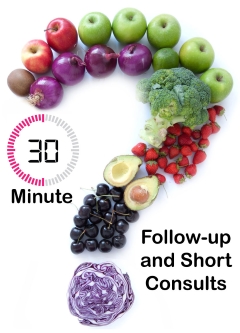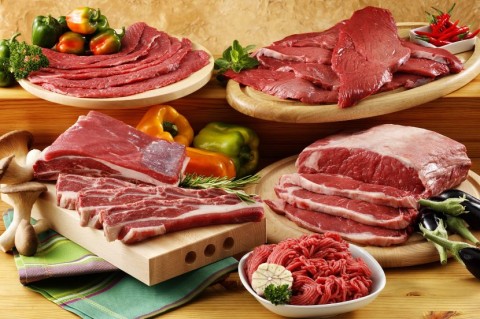DrCarney.com Blog
Red Meat, Gut Bacteria and Heart Disease
Research indicates that eating red meat increases the risk of death from cardiovascular disease. This is consistent with the results from the Nurses' Health Study and Health Professionals Follow-up study, that involved 120,000 people. It was estimated that "each serving (100 grams) of red meat raises the risk of cardiovascular death by 18 percent." The high saturated fat and heme iron content are two factors which are believed to increase the risk of developing heart disease. Excess iron is associated with oxidative stress, and saturated fats elevate both LDL cholesterol and total cholesterol levels.
Another factor that increases our risk for heart disease is the type of bacteria living in our intestinal tracts. What we eat determines which bacteria species is present. Eating a diet rich in fiber provides an energy source (prebiotics) that supports the growth of beneficial bacteria. Dr. Joel Fuhrman states in his article, "Research indicates that eating red meat regularly promotes the growth of bacteria that produce harmful substances from the components of red meat. It also indicates that those of us that regularly consume a healthful diet of whole plant foods have a healthier microbial profile, and we are less susceptible to the disease-promoting effects of high-carnitine meats."
Carnitine is an amino acid which is abundant in red meat. When carnitine is metabolized by intestinal bacteria, a substance called TMAO is produced. TMAO is a substance which has been shown to contribute to the development of atherosclerotic plaque. Recent studies measured both carnitine and TMAO in humans. These recent findings suggest "that the combination of high carnitine and high TMAO was associated with increased likelihood of cardiovascular disease or cardiovascular events (heart attack and stroke). When they gave humans carnitine supplements, they interestingly found that omnivores produced far more TMAO in response to carnitine than vegans and vegetarians. In addition, the species of gut bacteria in omnivores were different from those in vegetarians and vegans. These results suggest that regularly eating carnitine-containing foods promotes the growth of gut bacteria that can metabolize carnitine into a heart disease-promoting substance."
(1) Red Meat, Gut Bacteria and Heart Disease
(2) Red Meat Linked to Heart Disease
(3) TMAO and Renal Disorders and Mortality
(4) TMAO Metabolite and Atherosclerosis
(5) Other TMAO Related Studies
Joel Fuhrman MD Links
Thirty Minute Phone Consult with Dr. Carney

Telephone Food Coaching Sessions with Linda Carney MD
Due to demand for nutritional advice, Dr. Carney's offers Starch-Smart® System "Dietary Care Extraordinaire" Food Coaching telephone sessions. The first sessions is always one hour. Subsequent sessions can be thirty minutes or one hour:
Click Here For 30 Minute Food Coaching Session
Please Note: Food Coaching sessions are not medical appointments and are not intended to replace your own physician. No tests will be ordered and no prescriptions will be provided.
Scroll Down Page to Leave Comments

What Have You Got to Lose?
Fight the Obesity Epidemic! We provide Starch-Smart Support through our Helpful Sharing Community, Discussion Forums, and Blogging Platform.
When you subscribe to the blog, we will send you an e-mail when there are new updates on the site so you wouldn't miss them.




